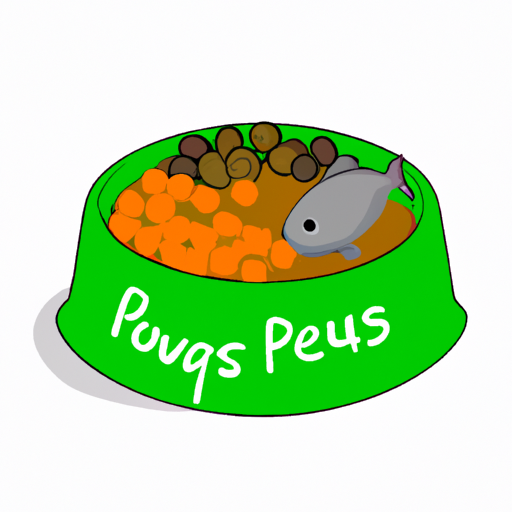Introduction:
As a caregiver, you want the best for your beloved pup. But when it comes to mealtime, you may be asking yourself – “What can I add to my dog’s food?” You’re in the right place! In this guide, we’ll explore five nutritious and delicious options to give your furry friend that little extra something in their bowl.
1. Lean Meats
Just like us, dogs need high-quality protein for optimal health. Lean meats like chicken, turkey, and fish are all great additions to your dog’s meal.
markdown
- Chicken: High in protein, vitamins, and minerals.
- Turkey: A lean source of protein, rich in selenium.
- Fish: A great source of omega-3 fatty acids, beneficial for skin and coat health.
Remember to cook all meats thoroughly and remove any bones to prevent choking hazards.
2. Vegetables
While dogs are primarily meat-eaters, certain vegetables can provide valuable nutrients and fiber. Here are some safe and healthy options:
markdown
1. Carrots: High in vitamin A and fiber.
2. Green Beans: Low in calories and high in iron and vitamins.
3. Pumpkin: Excellent for digestive health.
Always cut vegetables into small, manageable pieces to prevent choking.
3. Grains
Whole grains can be a healthy addition to your dog’s diet, providing much-needed energy and fiber. Here are a few options:
| Grain | Benefits |
|---|---|
| Brown Rice | High in fiber, promotes digestion |
| Quinoa | Protein-packed, contains all nine essential amino acids |
| Oats | Rich in vitamins and minerals, good for heart health |
4. Fruits
Fruits are a fantastic source of vitamins, minerals, and antioxidants.
markdown
- Apples: High in fiber and vitamin A and C.
- Bananas: Packed with potassium and vitamin C.
- Blueberries: Rich in antioxidants and vitamin C and K.
Remember, always remove any seeds or pits before serving to your dog.
5. Healthy Fats
Healthy fats are crucial for your dog’s overall health and well-being. They support brain function, skin health, and absorption of fat-soluble vitamins.
markdown
- Fish Oil: Rich in omega-3 fatty acids.
- Flaxseed Oil: Great plant-based source of omega-3.
- Olive Oil: Promotes skin health and shines coat.
Remember, moderation is key when it comes to fats. Too much can lead to weight gain and other health problems.
FAQs
Q: Can I feed my dog fruits and vegetables every day?
A: Yes, in moderation. They should not make up more than 10% of your dog’s daily caloric intake.
Q: Are there any foods I should avoid adding to my dog’s food?
A: Yes, avoid toxic foods such as grapes, raisins, onions, garlic, and chocolate.
Q: Do I need to cook all the meats before serving?
A: Yes, cooking meats kill harmful bacteria that can make your dog sick.
Remember, every dog is unique, and what works for one might not work for another. Always introduce new foods gradually and monitor your dog for any adverse reactions. And when in doubt, consult with your vet. Your dog will thank you for it!



